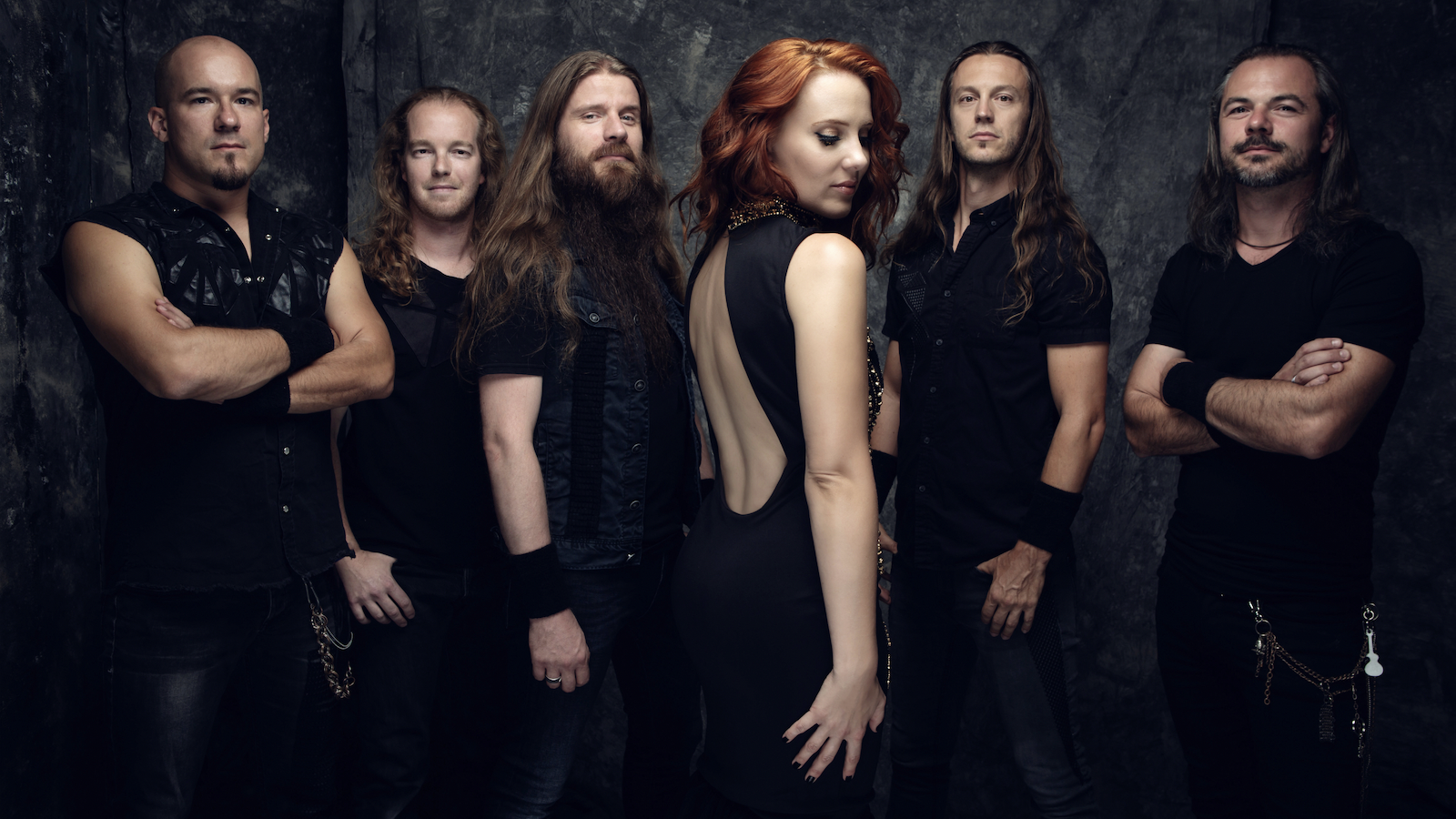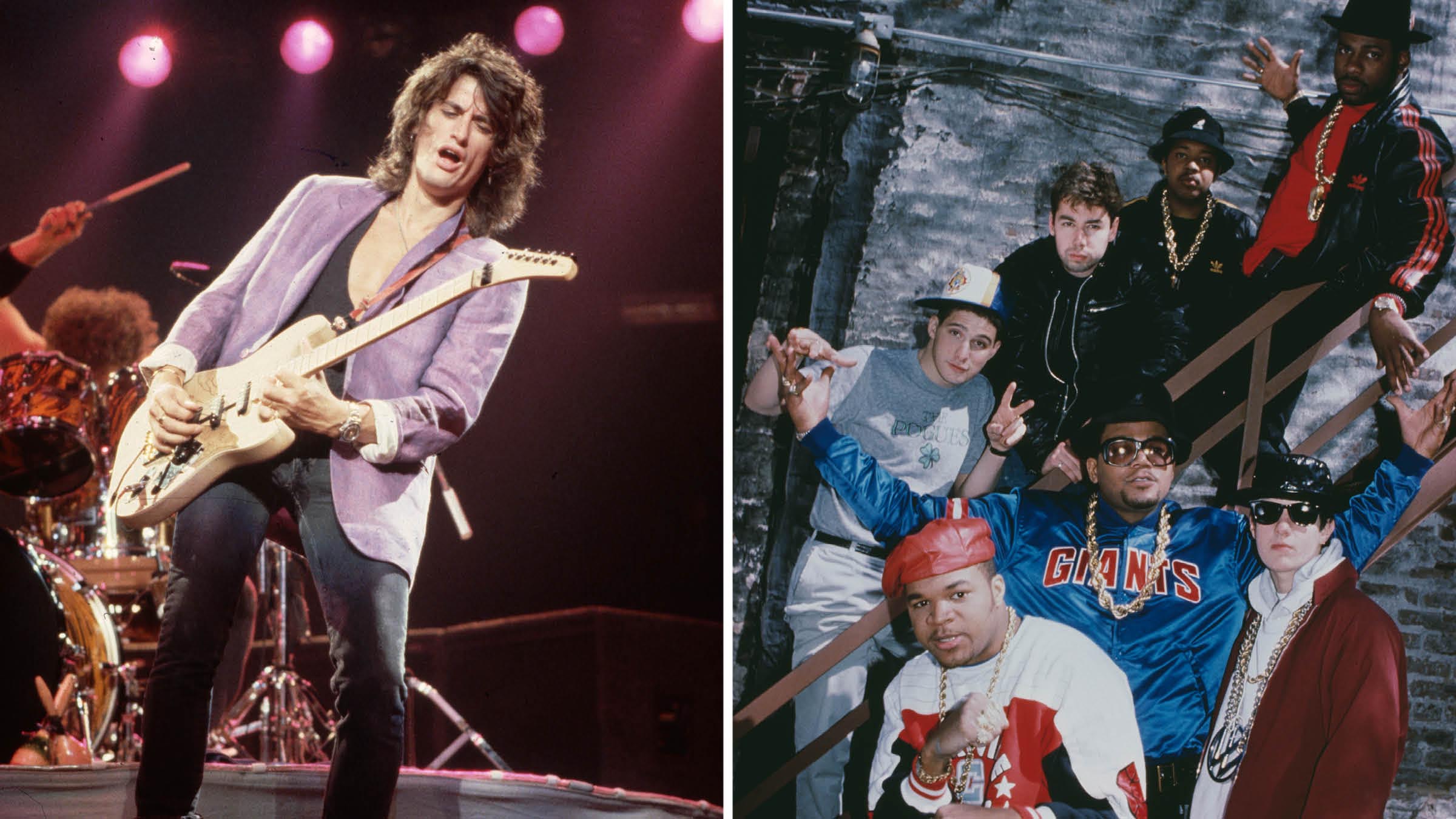Epica’s Mark Jansen: “I cannot stand when things stay the same for too long”
For the Dutch symphonic metallers in Epica, a big year back on the prowl means a big album to kick it off

All the latest guitar news, interviews, lessons, reviews, deals and more, direct to your inbox!
You are now subscribed
Your newsletter sign-up was successful
Note: this article is also featured in Australian Guitar #142, which is out now wherever great magazines are sold! Click here to read more about what’s in this jam-packed issue!
In true Epica fashion, album #8 is a stately, sprawling epic of incalculable proportions. Omega may run for 70 minutes, but from the first glassy and ethereal synths of “Alpha – Anteludium” to the tremendous, towering crescendo of “Omega – Sovereign of the Sun Spheres”, the record simply breezes past.
It’s a calculated refinement of the craft Epica have now spent two decades honing: part blunt and brutish metal onslaught, and part Broadway‑esque orchestral masterstroke. This time, however, the two sides aren’t so much clashing as they are complimentary; as rhythm guitarist Mark Jansen tells Australian Guitar, the idea with Omega was to explore the polychromatic peaks and valleys that two disparate styles of music can accomplish.
So this is the first record of original Epica material in five years – did you take a break from songwriting after The Holographic Principle, or has this LP been in the works since then?
No, we took a bit of a break. But in-between The Holographic Principle and this album, there was still two EPs and a book, so we were still hard at work. But we felt like we needed a little break to recharge the batteries, so we took a break from doing full albums. And it really was worth it in the end, because when we started writing [Omega], we felt like we were full of new energy and full of inspiration. I think from now on, that will be a nice way to work – to do an album, take a little break, and then go back to work. And now due to the pandemic, we’re already on another break – so maybe the next album will come a bit faster!
Did you find that doing those other projects aided in the creative spark that informed this record?
Yeah, definitely. I also released an album with my other band, MaYan [Dhyana], and that really helped my creativity in Epica. It’s good to get out of your comfort zone – for me, Epica – and challenge yourself to work with some other people. That way when you come back to what you know, you’re also recharged because of that. I love that diffraction. As a person, I cannot stand when things stay the same for too long; things have to constantly be in motion. That way when I head back to do a new Epica project, I’m fully into it
Were there any new techniques you were keen to explore on this record?
Yeah. The new techniques mainly come from Isaac – he studied music in university, so he’s very good at the technical aspects and the theory. Every time he comes up with something interesting, I try to copy it [laughs]. I learn a lot just by playing his parts – whenever I have to study the parts that he wrote for me, it’s like going one level up. It’s nice that a new guy can not only add a lot to the table in terms of composition, but also make me a better guitar player. And on this record, for the first time actually, we wrote a full song together. We wrote “Kingdom Of Heaven, Part 3” together. It’s strange that it took so long, but I’m glad we finally did it.
I love the way the guitars ebb and flow with the orchestral elements on this record – something Epica has really made a name for itself with over the years. Do you see the guitar almost like an extension of the string section, in a sense?
Yeah. When we made The Holographic Principle, we tried to make both elements equally heavy, so it sometimes sounds like the guitars and the orchestra are battling with each other; they are in competition with each other. But for [Omega], like you said, it was more about the ebb and flow – sometimes we’d have the guitars more prominent and the orchestra sitting a bit more to the back, and sometimes it would be the other way around. And this way, I think the guitars sound a lot more heavy when they’re supposed to be heavy, and the orchestral parts sound a lot more beautiful when they’re supposed to. They’re not in competition with each other anymore, but actually make each other stronger. I think this approach to mixing is more beneficial for the guitars in the end, too, because they get more space to stand out.
All the latest guitar news, interviews, lessons, reviews, deals and more, direct to your inbox!
It toes that line between beauty and brutality.
Exactly. It was a big decision, but I set very clearly before we started making this album that my goal for it was to have a more dynamic mix. Because it’s a pity that you sometimes lose detail when you push everything to the limit. The mix on this album is more transparent – it’s exactly how I wanted it to be.
What guitars did you have in the fold this time around?
I always use my Ibanez guitars, and Isaac is more of a Gibson guy. The amps we use are the Bogner Uberschalls – they have such a great sound – and we also make use of Positive Grid guitar amp simulators. These amp simulators are so good nowadays that you almost can’t hear the difference anymore. We still use the real thing in the studio however, because even if it’s only that tiny percentage better, you have to go for the best. But I’m in love with those simulators for when I’m writing; in the past I didn’t want to have anything to do with them, but nowadays they’re so good that I use them exclusively for demos.
Especially when you’re doing stuff at home, there’s a lot more freedom with simulators.
Exactly. My home studio is getting smaller and smaller; I’ve been using the same laptop I use for these interviews to record demos. I have Logic Pro X installed on this, and then I have a Zoom G1 processor that I can plug my guitar into and record my riffs. Even when I’m on a plane and I have an idea for a guitar riff, I can program in the MIDI guitars and use the same effects that I use for my playing.

Ellie Robinson is an Australian writer, editor and dog enthusiast with a keen ear for pop-rock and a keen tongue for actual Pop Rocks. Her bylines include music rag staples like NME, BLUNT, Mixdown and, of course, Australian Guitar (where she also serves as Editor-at-Large), but also less expected fare like TV Soap and Snowboarding Australia. Her go-to guitar is a Fender Player Tele, which, controversially, she only picked up after she'd joined the team at Australian Guitar. Before then, Ellie was a keyboardist – thankfully, the AG crew helped her see the light…
